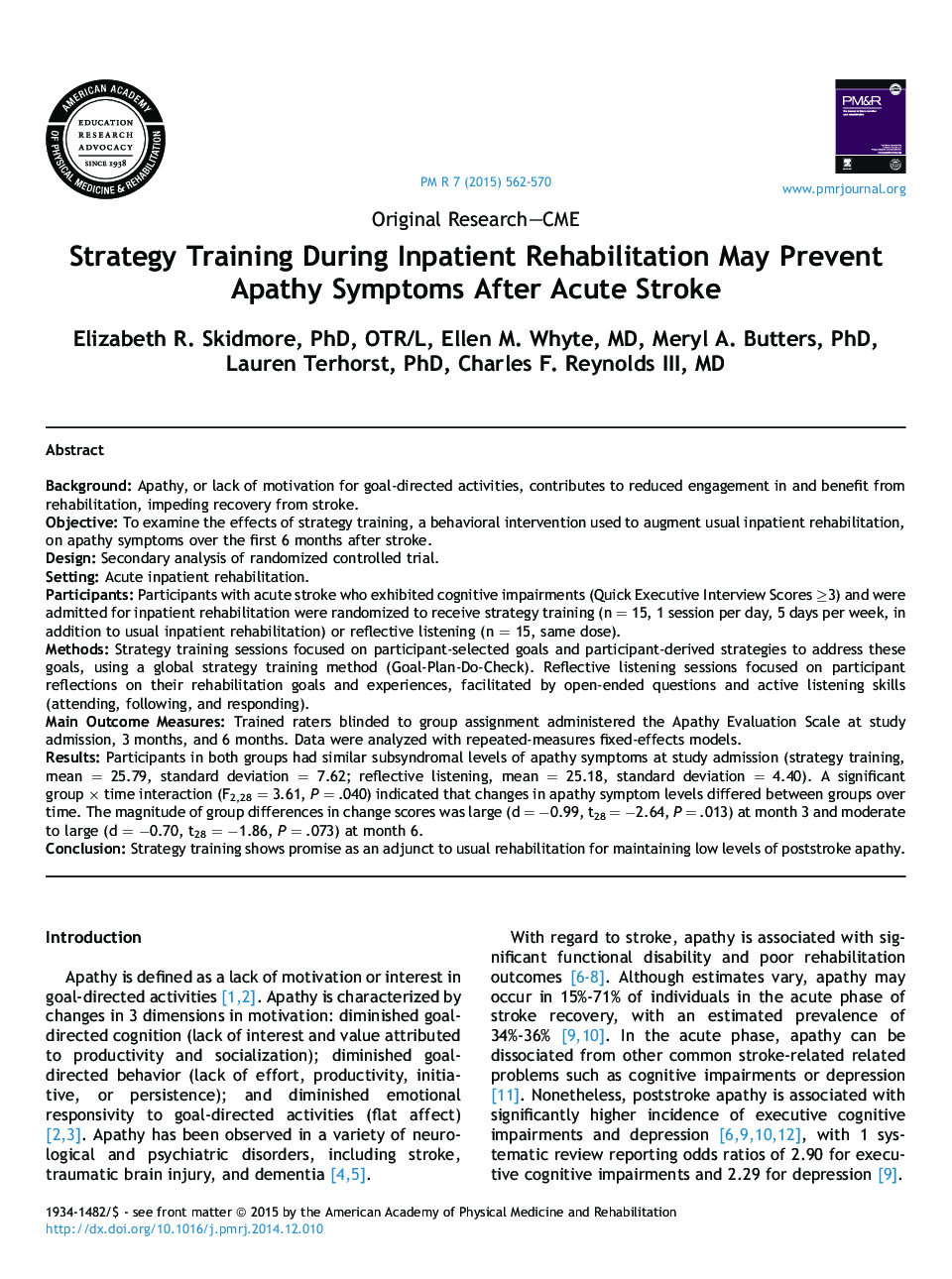| Article ID | Journal | Published Year | Pages | File Type |
|---|---|---|---|---|
| 2704939 | PM&R | 2015 | 9 Pages |
BackgroundApathy, or lack of motivation for goal-directed activities, contributes to reduced engagement in and benefit from rehabilitation, impeding recovery from stroke.ObjectiveTo examine the effects of strategy training, a behavioral intervention used to augment usual inpatient rehabilitation, on apathy symptoms over the first 6 months after stroke.DesignSecondary analysis of randomized controlled trial.SettingAcute inpatient rehabilitation.ParticipantsParticipants with acute stroke who exhibited cognitive impairments (Quick Executive Interview Scores ≥3) and were admitted for inpatient rehabilitation were randomized to receive strategy training (n = 15, 1 session per day, 5 days per week, in addition to usual inpatient rehabilitation) or reflective listening (n = 15, same dose).MethodsStrategy training sessions focused on participant-selected goals and participant-derived strategies to address these goals, using a global strategy training method (Goal-Plan-Do-Check). Reflective listening sessions focused on participant reflections on their rehabilitation goals and experiences, facilitated by open-ended questions and active listening skills (attending, following, and responding).Main Outcome MeasuresTrained raters blinded to group assignment administered the Apathy Evaluation Scale at study admission, 3 months, and 6 months. Data were analyzed with repeated-measures fixed-effects models.ResultsParticipants in both groups had similar subsyndromal levels of apathy symptoms at study admission (strategy training, mean = 25.79, standard deviation = 7.62; reflective listening, mean = 25.18, standard deviation = 4.40). A significant group × time interaction (F2,28 = 3.61, P = .040) indicated that changes in apathy symptom levels differed between groups over time. The magnitude of group differences in change scores was large (d = −0.99, t28 = −2.64, P = .013) at month 3 and moderate to large (d = −0.70, t28 = −1.86, P = .073) at month 6.ConclusionStrategy training shows promise as an adjunct to usual rehabilitation for maintaining low levels of poststroke apathy.
